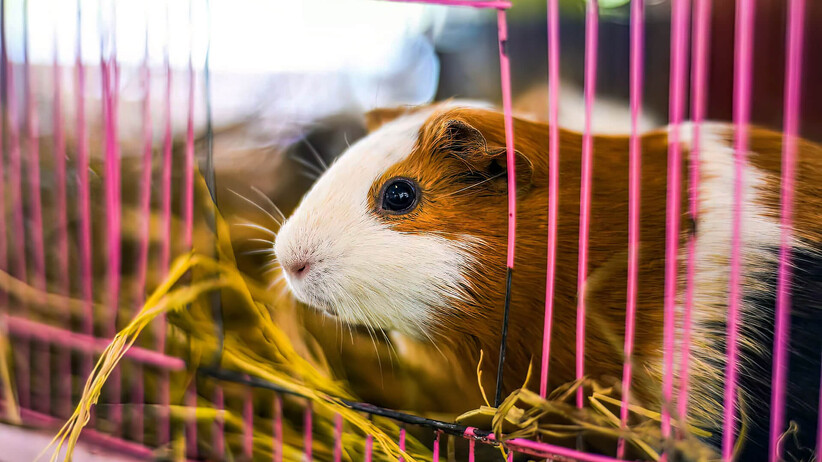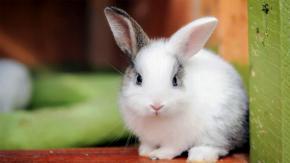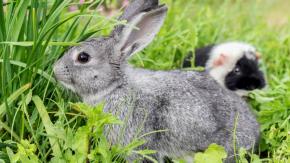Guinea pigs are extremely popular, and one of the reasons for that is that they have fun personalities.
They can be very entertaining to play with and also have long lives. However, they require a great deal of care, and there is one common issue that many guinea pig owners experience. Owners often complain of their pet’s cage smelling bad, which can happen for various reasons, but mostly when the cage is not kept clean.
This guide will discuss how to keep your guinea pig’s cage from smelling and other ways to eliminate foul odour.
Preventing Your Guinea Pig Cage From Smelling
Guinea pigs are not smelly creatures by habit, but sometimes you may experience a foul smell where they are kept. The reason is that these friendly rodents require proper maintenance, and their surroundings should be cleaned regularly. If this is not followed, their cage can become dirty, which leads to a terrible smell.
The easiest way to prevent this is to get a large cage for your guinea pigs that provide adequate space for moving around, feeding and sleeping. In addition, you should opt for high-quality bedding that does a good job of absorbing odour. Finally, spot clean every day and deep clean the cage every week.
But unclean surroundings are not the only thing causing a bad smell, as health issues like urinary tract infections and diarrhoea also have the same effect.
Getting Rid Of Guinea Pig Smell From Your Room
Regularly cleaning your guinea pig’s cage using odourless materials can help eliminate the bad smell. The Hutch Cleaner Spray is an excellent cage-cleaning spray; selecting the right bedding is also important.
Aspen or fleece bedding is great at absorbing the smell that emanates from guinea pig excrement and can be used inside the guinea pig cage. Also, sometimes male guinea pigs smell as they give off a strong smell from their grease gland, which can be eliminated by neutering or spaying them. Fortunately, this is not an issue with female guinea pigs.
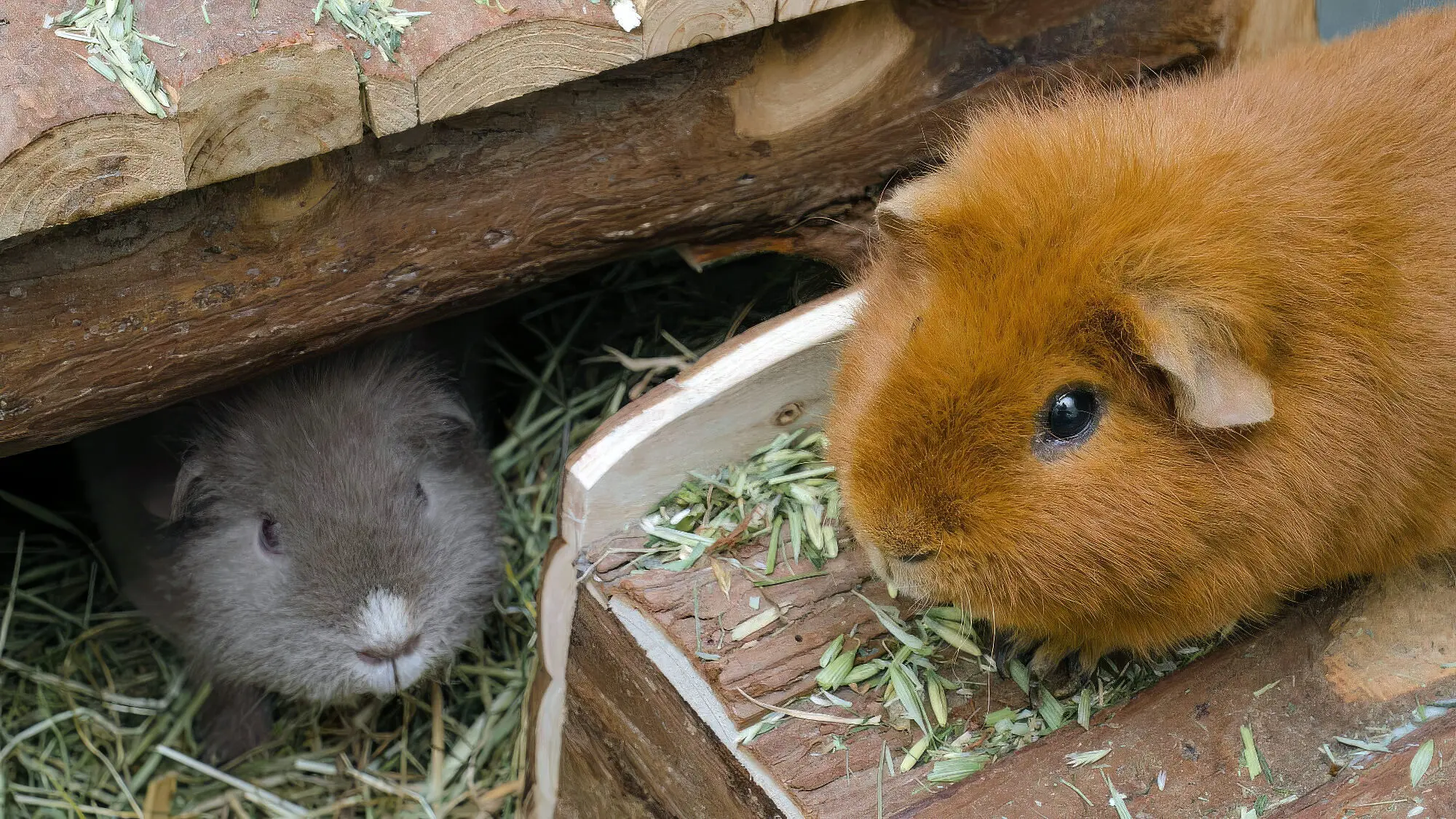
Not having the right cage size can lead to foul odours as well. In small cages, guinea pigs do not have enough space to move around comfortably and can get smelly poop all over themselves. This is especially true for long-haired guinea pigs; getting a bigger cage can prevent such foul odours.
Additionally, keeping your guinea pigs in a well-ventilated room to ensure proper airflow will prevent the guinea pigs' cage from smelling. You can even use an air filter, such as a HEPA or carbon-based models, to eliminate the guinea pig cage smell.
Aside from that, feeding your guinea pig too many vegetables or sugar-rich foods can lead to problems like watery bottoms and diarrhoea. This will result in soiled bedding and make the guinea pig cage smell bad. You should also avoid citrus fruits and go with fresh hay while removing leftover food daily.
In situations where guinea pig cages are kept clean, but there is still a foul odour, your pet might be suffering from health issues. To determine the problems and how to deal with them, take your guinea pig to the vet as soon as possible.
Understanding Why Your Guinea Pig Cage Smells Bad
If the guinea pig pee smells bad, it may indicate a urinary tract infection (UTI) or an improper diet, but this is not always the case. Usually, the cage starts smelling if it is not being cleaned regularly or if the bedding used for the guinea pigs needs to be of better quality.
When the cage is not cleaned timely, the guinea pig pee leads to a build-up of ammonia, which smells fishy. To prevent this, change the bedding frequently and use odour-control bedding to absorb the smell.
Are Guinea Pigs Smelly Pets?
Most of them are not smelly creatures; they remain clean when kept in a clean environment. But if you find guinea pigs smell, the cage might need some spot cleaning.
Why Is It Important To Keep Your Guinea Pig Cage Clean?
Regular cleaning of your guinea pig cage is extremely important to prevent the house from having a fishy smell. An unclean cage can also adversely affect the health of your guinea pigs in the following ways:
1. Breathing Problems
A build-up of ammonia can reduce the breathing rate in guinea pigs, causing health issues like Upper Respiratory Tract Infection (URI).
2. Loss Of Fur
If there is a build-up of pee inside the guinea pig cage, your guinea pig’s fur likely remains wet most of the time. This can result in lost patches of fur, making your pet more susceptible to flystrike.
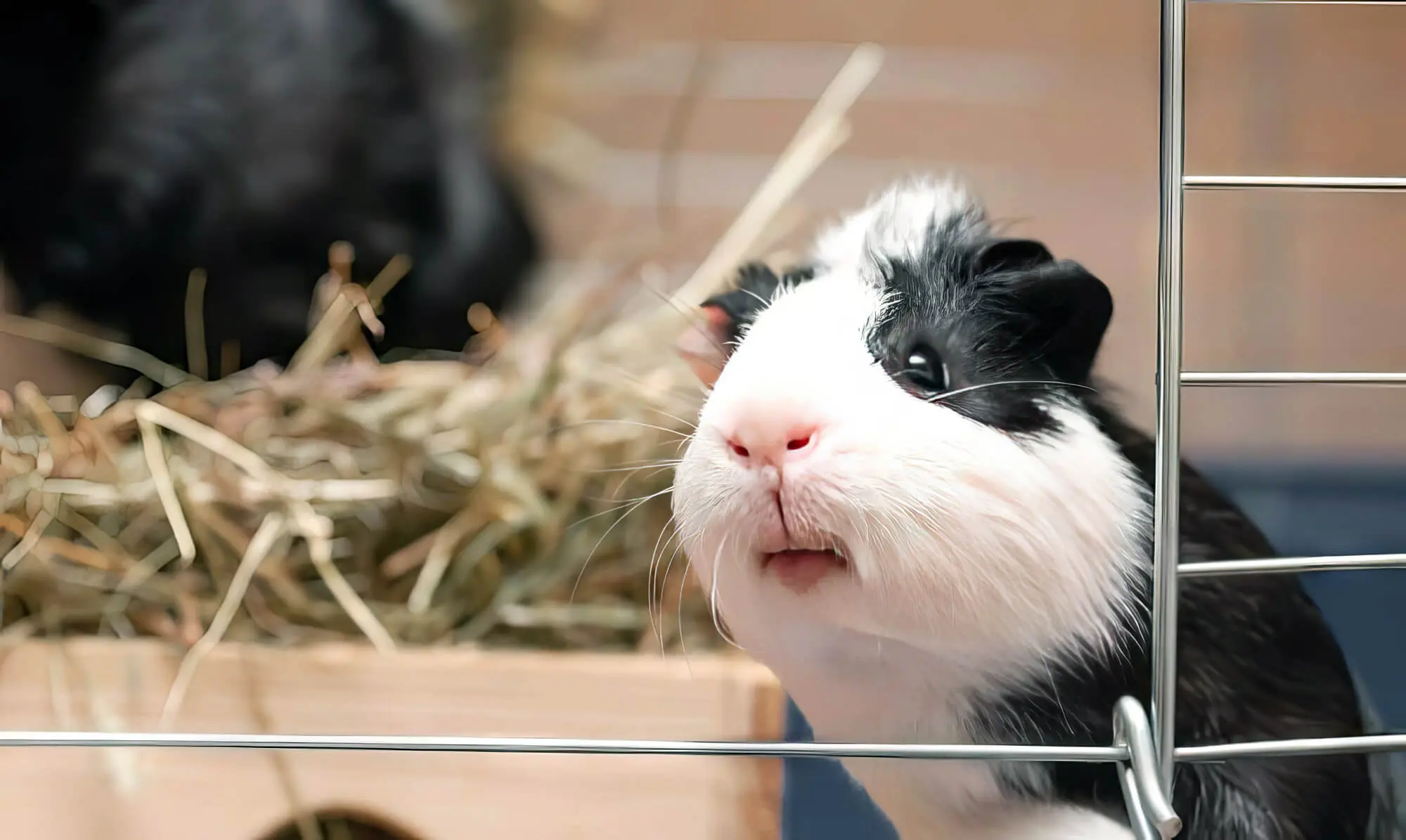
3. Bumblefoot
Bumblefoot is a condition that can be dangerous for guinea pigs and occurs due to urine-soaked bedding.
4. UTI
A guinea pig with unclean conditions may be afflicted with UTIs, which can be fatal.
5. Discomfort And Stress
Guinea pigs can get stressed if their environment is not clean. When under stress, these pets tend to start biting the bars of the cage, pull out their fur, and indulge in other activities that may be harmful.
How Frequently Should You Clean Your Guinea Pig Cage?
How regularly the entire cage is cleaned depends on certain factors. For instance, a guinea pig cage containing two piggies should be spot-cleaned daily, besides deep cleaning the cage once a week.
However, if you have more guinea pigs, cleaning the cage frequently may be ideal but avoid bathing guinea pigs until it is absolutely necessary.
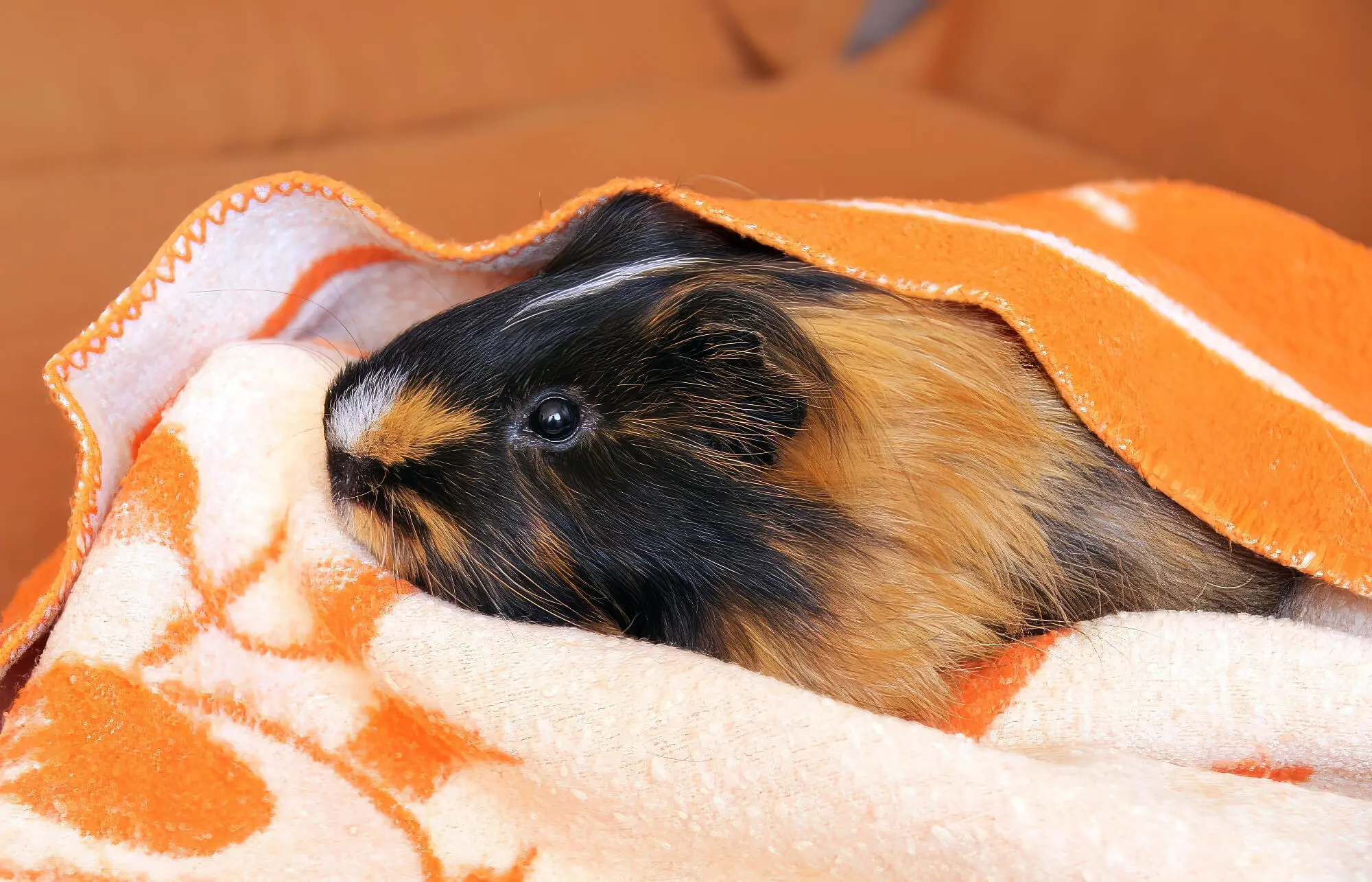
Cleaning Your Guinea Pig Cage
To spot-clean your guinea pig cage, use a handheld vacuum, a brush and a dustpan to remove leftover food or poop around the cage. Then, use a sponge, a brush, or warm water to clean the cage base and remove debris from the corners. White vinegar and baking soda can also help in eliminating cage odours.
Any bedding that has become soiled should be replaced with fresh bedding, such as the All Natural Pet Bedding. Replace the bedding at least twice a week, especially in areas where water bottles and food are kept, but the entire bedding should be replaced once every week.
Finally, remove the toys and hideouts and clean them as well. Ensure they are completely dry before placing them back in your pet’s cage.
Keeping Your Guinea Pig Cage From Smelling Bad
Apart from regular cleaning, selecting the right bedding and feeding items for your guinea pig is important. While there is no shortage of options, only some are safe for guinea pigs. For instance, a cat litter box is not a good option since parts of it can be ingested.
You can use fleece liners which do a good job of absorbing unpleasant smells and are available at almost any online store. Similarly, when selecting a cage cleaner, choose a safe option and provide your guinea pig with the right diet, such as fresh meadow hay. This diet can help prevent bad smells from keeping the cage smelling fresh.

